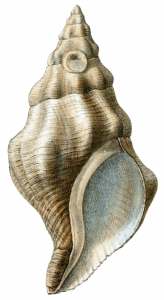Mission: to advance ocean conservation through education, exploration and experience.
Making our dramatic (and previously inaccessible) coastline available for innovative scientific research, hands-on education and natural resource stewardship.
The Noyo Center has a three-pronged approach to development, supporting an innovative research program, creating an integrated education program and building a world-class facility for research, education and tourism. Our research and education programs support activities that engage the community, the visitor, and the scientist in order to inspire connection, communication, collaboration and creativity. Our future Noyo Headlands facility will be a dynamic environment that showcases sustainability through its landscape, buildings and operations. This campus will unfold from the land with one element leading naturally to another as it grows and changes over time, transforming the former lumber mill site.

- Place the Mendocino Coast at the forefront of marine research and education.
- Engage citizens and children in scientific exploration of the natural world.
- Exhibit a rare blue whale skeleton
- Facilitate collaboration among scientists, public agencies and private business in research and management of natural resources.
- Support the restoration and protection of coastal and marine ecosystems.
- Promote investigation of climate variability and education about improved resiliency.
- Draw visitors to Fort Bragg and the Mendocino Coast.
- Diversify economic development for Fort Bragg and Mendocino County.
The vision for our mill site property development
The future headlands facility will create a physical space for researchers, students, families and visitors to explore the Mendocino coast and investigate the dynamic relationship between humans and the natural world.
Physical features will include:
- Marine Research laboratories and office space and a marine mammal triage center.
- Public interpretive area that includes an aquarium, tidal exhibits, auditorium and cafe.
- An exhibition space featuring a 73-foot articulated blue whale skeleton and other natural history exhibits.
- 11.5-acres of restored site that connects to shoreline and ocean habitats, the California Coastal Trail, and 90-acres of coastal park.
- A campus designed for net-zero energy and zero carbon footprint.
Updated building site design plans will be posted soon!

